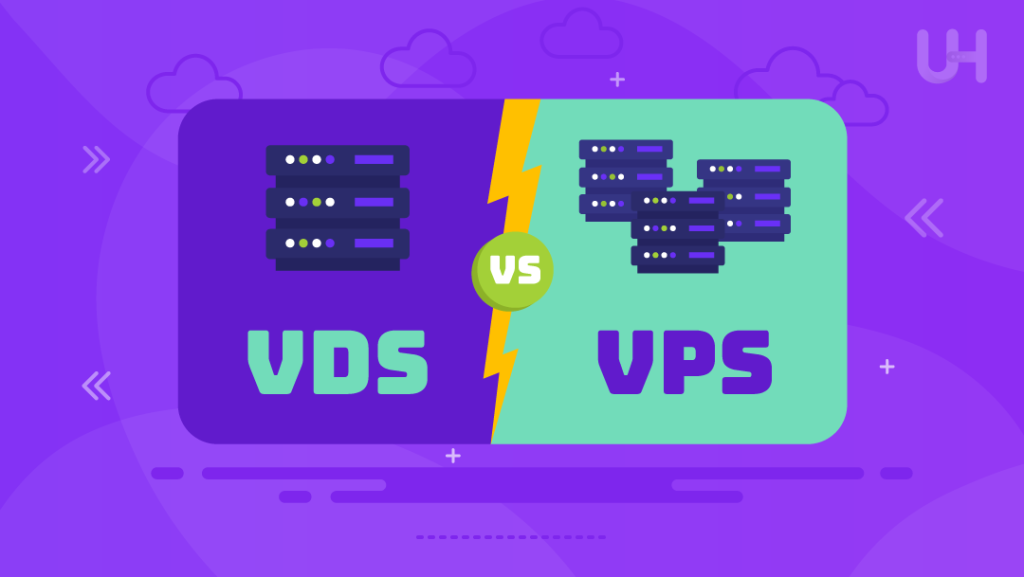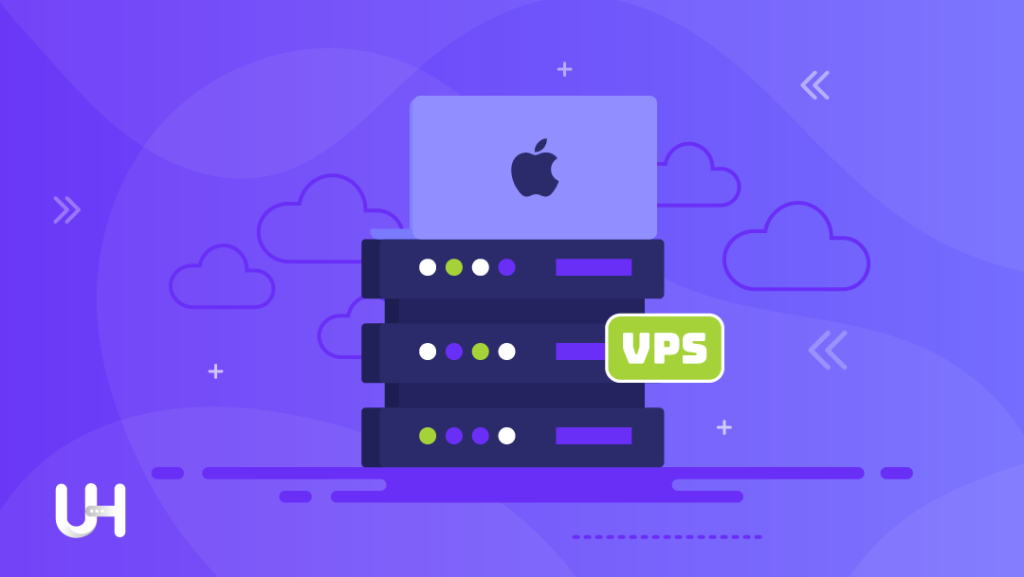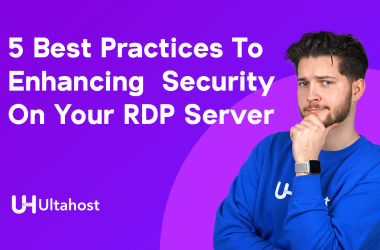
The foundation of any successful online presence starts with reliable and efficient web hosting. Whether you’re running a personal blog, an e-commerce site, or a complex web application, the type of hosting service you choose can significantly impact your website’s performance, security, and scalability. Two of the most prominent hosting options available are Virtual Dedicated Servers (VDS) and Virtual Private Servers (VPS).
Both offer unique advantages tailored to different needs and budgets, making them popular choices among website owners and developers. Understanding the distinctions between VDS vs VPS Hosting can help you make an informed decision that aligns with your specific requirements.
In this blog, we will demystify the concepts of VDS and VPS hosting. We’ll discuss what each type of hosting entails and highlight their key features. Whether you’re a seasoned IT professional or a business owner exploring hosting options for the first time, by the end of this blog you will get valuable insights to help you choose the right hosting solution to support your online goals.
What is Hosting?
Web hosting is a service that allows individuals and organizations to make their websites accessible on the internet. When you create a website, its files need to be stored somewhere, and web hosting provides the space on a server where these files are housed. Hosting providers offer the technology and infrastructure needed to keep your site running smoothly, ensuring that it is available to users around the clock.
Overview of Different Hosting Types
There are several types of web hosting, each suited to different needs and budgets:
- Shared Hosting: This is the most basic and cost-effective type of hosting. In shared hosting, multiple websites share the same server and its resources, such as CPU, RAM, and storage. This setup is ideal for small websites or blogs with low traffic, but it can lead to performance issues if one site on the server consumes too many resources.
- Dedicated Hosting: With dedicated hosting, you get an entire server dedicated to your website. This provides maximum performance, flexibility, and security, as you do not share resources with any other sites. Dedicated hosting is suitable for large businesses or websites with high traffic volumes, but it comes at a higher cost.
- Cloud Hosting: Cloud hosting uses a network of virtual servers to host websites. This allows for greater flexibility and scalability, as resources can be adjusted according to demand. Cloud hosting is highly reliable because it distributes resources across multiple servers, reducing the risk of downtime due to hardware failure.
Among these options, two of the most popular and versatile hosting solutions are Virtual Dedicated Servers (VDS) and Virtual Private Servers (VPS).
A Virtual Dedicated Server (VDS) is a type of hosting where a physical server is divided into multiple virtual servers, each acting as its own dedicated environment. Each VDS has dedicated resources such as CPU, RAM, and storage, providing high performance and reliability.
On the other hand, a Virtual Private Server (VPS) also involves partitioning a physical server into multiple virtual servers. However, unlike a Virtual Dedicated Server, the resources in a VPS are shared among the virtual servers, albeit with a guaranteed minimum allocation for each.
Importance of Choosing the Right Hosting Solution
Choosing the right hosting solution is a critical decision that can have far-reaching implications for your website and business. The hosting environment you select directly impacts your website’s performance, scalability, and overall cost-efficiency, making it essential to align your hosting choice with your specific needs and objectives.
Impact on Website Performance
Website performance is paramount in the digital world, where users expect fast loading times and seamless navigation. The hosting solution you choose influences factors such as server response time, uptime, and the ability to handle traffic spikes. For instance, a website hosted on a Virtual Dedicated Server (VDS) can leverage dedicated resources, ensuring consistent high performance even during peak traffic periods. Conversely, while a Virtual Private Server (VPS) offers improved performance over shared hosting, it may still experience variability if other virtual servers on the same physical machine consume significant resources.
Implications for Scalability and Growth
As your business grows, so will your website’s demands. Scalability is the ability of your hosting solution to accommodate increasing traffic and data without compromising performance. A VPS can be easily scaled by adjusting resource allocations, making it suitable for businesses expecting moderate growth. However, a VDS provides even greater scalability, supporting substantial business practices and high-traffic volumes without sacrificing performance. This makes VDS ideal for businesses with aggressive expansion plans or those operating in high-traffic environments.
Cost-Efficiency and Budget Considerations
Cost-efficiency is a crucial factor for any business. While VDS hosting tends to be more expensive than VPS due to its dedicated resources, it can offer better value for money in scenarios requiring high performance and reliability. VPS hosting, on the other hand, strikes a balance between cost and performance. Also, making it a more budget-friendly option for smaller businesses or startups with e-commerce hosting. Carefully evaluating the total cost of ownership, including potential future upgrades, can help in making a financially sound decision.
Business Needs and Hosting Requirements
Different businesses have unique hosting needs based on their industry, size, and specific online objectives. Understanding these needs is essential in choosing the right hosting solution.
- For instance, e-commerce websites often require robust hosting solutions to manage high traffic, secure transactions, and provide a seamless user experience. Such businesses might prefer VDS hosting for its high performance and reliability.
- Small to medium-sized businesses or personal blogs might not need the extensive resources of a VDS. A VPS hosting solution could be more appropriate, offering sufficient performance and customization at a lower cost.
- Development agencies and startups frequently engage in web development and testing, which requires a flexible and scalable hosting environment. VPS hosting can provide the necessary balance of cost-effectiveness and performance for such dynamic needs.
- Financial services or healthcare organizations, which handle sensitive data, might opt for VDS hosting due to its enhanced security and dedicated resources, ensuring compliance with stringent data protection regulations.
VDS vs VPS Hosting: Understanding the Difference
Choosing between VDS vs VPS Hosting requires understanding their technical distinctions, performance capabilities, reliability, and cost implications. Each option serves different needs, and knowing these differences can help you make an informed decision.
VDS vs VPS Hosting: Technical Comparison
A Virtual Dedicated Server (VDS) offers dedicated resources similar to a dedicated server. In VDS hosting, a physical server is partitioned into several virtual servers, each with its own dedicated CPU, RAM, storage, and unlimited bandwidth. This means that the resources allocated to your VDS are exclusively yours. It ensures consistent performance and control akin to having a dedicated physical server.
Conversely, a Virtual Private Server (VPS) shares resources on a physical server among multiple virtual servers. Each VPS is allocated a certain portion of the server’s resources, but these resources are not entirely exclusive. If one VPS on the server experiences high usage, it can impact the performance of other VPS instances on the same server. VPS hosting offers more resources and flexibility than shared hosting but falls short of the guaranteed performance of a VDS.
VDS vs VPS Hosting: Performance and Reliability
When it comes to performance, VDS hosting is superior because of its dedicated resources. This exclusivity ensures that your website or application experiences consistent performance, regardless of the activity on other virtual servers. VDS is ideal for high-traffic websites, resource-intensive applications, or businesses that cannot afford any performance degradation.
VPS hosting, while providing better performance than shared hosting, can sometimes face resource contention if other VPS instances on the same server are heavily utilized. However, for many small to medium-sized websites, the performance offered by a VPS is more than adequate. VPS hosting provides a good balance between performance and cost. Also, making it suitable for websites and applications with moderate traffic and resource needs.
Reliability is another critical factor. VDS hosting offers high reliability because the dedicated resources eliminate the risk of another user’s activity affecting your server’s performance. VPS hosting, while generally reliable, might experience occasional fluctuations if the physical server’s resources are overextended. However, reputable VPS providers use sophisticated resource management techniques to minimize such risks and ensure a stable environment.
VDS vs VPS Hosting: Cost Implications
The cost of VDS hosting is higher than VPS hosting due to the dedicated nature of the resources. This cost can be justified for businesses that require high performance, complete control, and enhanced security. For instance, large e-commerce websites, financial services, or applications requiring significant computational power might find the investment in VDS hosting worthwhile given the benefits.
VPS hosting, on the other hand, is more cost-effective, providing a middle ground between shared hosting and dedicated servers. It offers significant performance improvements over shared hosting at a fraction of the cost of VDS. For small to medium-sized businesses, startups, or personal websites, VPS hosting can deliver the necessary resources without the higher price tag of VDS.
Choose the Right Hosting Solution for Business
Explore UltaHost’s VDS Hosting and discover the power of dedicated resources and enhanced security. Whether you are running a website or a resource-intensive application, our VDS solutions provide the reliability and control you need to succeed.
Features of VDS
Virtual Dedicated Server (VDS) hosting offers several key features that make it a powerful and reliable choice for businesses and individuals needing robust web hosting solutions. Here’s a detailed look at the primary features of VDS hosting:
Dedicated Resources
One of the standout features of VDS hosting is the allocation of dedicated resources. Unlike shared hosting or VPS, where resources are distributed among multiple users, a VDS provides you with exclusive access to CPU, RAM, and storage. This means that the resources allocated to your server are not shared with any other users, ensuring that you have the full computing power and storage capacity as specified in your hosting plan. This dedicated allocation is crucial for maintaining high performance and reliability, especially for resource-intensive applications and websites.
High Performance
VDS hosting is known for its high performance, thanks to the dedicated resources and isolation from other users. This setup ensures that your website or application can handle high traffic volumes and demanding workloads without experiencing slowdowns. The consistent performance of a VDS is ideal for businesses that require reliable and fast response times, such as e-commerce sites, large databases, and real-time applications. The dedicated nature of the resources ensures that your performance metrics are stable and predictable, providing a seamless experience for your users.
Customization and Control
With VDS hosting, you get full root access to your server, allowing you complete control over the server environment. This means you can customize the server settings, install any software or applications you need, and configure the server to meet your specific requirements. The level of control provided by VDS hosting is comparable to that of a dedicated server, giving you the flexibility to tailor the server environment to your exact needs. This is particularly beneficial for developers and IT professionals who require a high degree of customization and control over their hosting environment.
Enhanced Security
Security is a major concern for any online presence, and VDS hosting offers enhanced security features to protect your data and applications. Since your server resources are dedicated and isolated from other users, there is a reduced risk of security breaches compared to shared hosting environments. VDS hosting typically includes advanced security measures such as firewalls, DDoS protection, and regular security updates. Additionally, having full control over your server allows you to implement your own security protocols, further safeguarding your data against threats.
Scalability
As your business grows, your hosting needs may change. VDS hosting offers excellent scalability, allowing you to easily upgrade your server resources as needed. Whether you need more CPU power, additional RAM, or increased storage capacity, VDS hosting providers can accommodate your growing requirements without significant downtime or disruption. This scalability ensures that your hosting solution can evolve with your business. Also, providing the necessary resources to support increased traffic and more complex applications over time.
Who Can Benefit from VDS?
Virtual Dedicated Server (VDS) hosting offers a powerful and flexible hosting solution suitable for a wide range of businesses and applications. Here are some specific scenarios and types of users who can benefit significantly from VDS hosting:
High-Traffic Websites
VDS hosting is ideal for high-traffic websites such as e-commerce sites, news portals, and popular blogs. These types of websites require reliable and consistent performance to handle large volumes of visitors without experiencing slowdowns or downtime. With dedicated resources, VDS hosting ensures that high-traffic sites can manage peak loads efficiently. Furthermore, providing a seamless user experience even during traffic spikes. This is particularly important for e-commerce sites, where performance issues can directly impact sales and customer satisfaction.
Resource-Intensive Applications
Applications that require high computational power, such as large databases, data analytics tools, machine learning applications, and complex web applications, can greatly benefit from VDS hosting. The dedicated CPU, RAM, and storage resources provided by a VDS ensure that these resource-intensive applications run smoothly and efficiently. This setup allows for faster processing times, better responsiveness, and the ability to handle complex operations without performance degradation. VDS hosting is perfect for businesses that rely on robust applications to drive their operations and need a hosting environment that can keep up with their demands.
Businesses Needing High Security
For industries where data security is paramount, such as financial services, healthcare, and legal sectors, VDS hosting offers enhanced security features that are crucial for protecting sensitive information. With VDS hosting, businesses benefit from isolated server environments, reducing the risk of data breaches and unauthorized access. The ability to implement custom security protocols and utilize advanced security measures, such as firewalls, encryption, and DDoS protection, ensures that sensitive data is safeguarded. VDS hosting provides the high level of security required to comply with industry regulations and protect against cyber threats.
Companies Requiring Custom Server Configurations
Companies that need specific software, custom configurations, or specialized server setups will find VDS hosting particularly beneficial. With full root access, VDS hosting allows for complete customization of the server environment. This means businesses can install and configure software that is critical to their operations. Adjust server settings to optimize performance, and create tailored environments to meet unique needs. This level of control and flexibility is essential for businesses that rely on specific applications or have unique hosting requirements that cannot be met with standard hosting solutions.
Features of VPS

Virtual Private Server (VPS) hosting offers a balanced and cost-effective solution for businesses and individuals seeking reliable web hosting. Here are some key features that make VPS hosting a popular choice:
Cost-Effective
One of the most significant advantages of VPS hosting is its cost-effectiveness. VPS hosting is more affordable than dedicated or VDS hosting , making it an attractive option for small to medium-sized businesses, startups, and individuals with budget constraints. Despite its lower cost, VPS provides better performance and more resources than shared hosting, delivering excellent value for money.
Balanced Resources
VPS hosting offers a balanced allocation of resources, making it suitable for small to medium-sized websites. Each VPS is allocated a certain portion of the server’s CPU, RAM, and storage. It ensures that your website or application has sufficient resources to operate smoothly. This setup provides a significant performance improvement over shared hosting, where resources are shared among many users, potentially leading to slowdowns. VPS hosting strikes a good balance between resource availability and cost, catering to a wide range of hosting needs.
Ease of Use
VPS hosting typically comes with user-friendly control panels and management tools. Ultimately, makes it accessible even for those without advanced technical skills. Control panels such as cPanel, Plesk, or custom interfaces provided by hosting providers allow users to manage their server environment easily. These tools enable tasks such as managing domains, setting up email accounts, installing software, and monitoring server performance. Furthermore, simplifying the management process and reducing the learning curve.
Scalability
As your business grows, your hosting needs may evolve. VPS hosting offers excellent scalability, allowing you to upgrade your resources as required. Whether you need more CPU power, additional RAM, or increased storage, VPS hosting providers can quickly adjust your resource allocation to meet your growing demands. This scalability ensures that your hosting solution can adapt to changes in traffic and workload without the need for significant migrations or downtime. Furthermore, supporting your business’s long-term growth.
Reliability
VPS hosting is significantly more reliable than shared hosting. In a shared hosting environment, the performance and reliability of your website can be affected by the activities of other users on the same server. VPS hosting mitigates this risk by providing isolated environments for each user. While resources are still shared at the physical server level, each VPS operates independently. Furthermore, ensures a higher level of stability and reliability. This isolation means that issues affecting one VPS do not impact others on the same server. Therefore, leading to more consistent uptime and performance.
Who Can Benefit from VPS?
Virtual Private Server (VPS) hosting is a versatile and cost-effective solution that caters to a wide range of users. Here are some specific groups who can particularly benefit from VPS hosting:
Small to Medium-Sized Businesses
VPS hosting is ideal for small to medium-sized businesses, such as startups, small e-commerce sites, and service-based businesses. These businesses often need more resources and better performance than shared hosting can provide but do not yet require the extensive capabilities of a Virtual Dedicated Server (VDS) or dedicated server. VPS hosting offers a balanced combination of performance, reliability, and cost, making it perfect for businesses that need a robust online presence without breaking the bank.
Web Development and Testing
For web developers, having a reliable and flexible hosting environment is crucial for development and testing. VPS hosting provides the perfect solution, offering dedicated resources and the ability to install and configure custom software and development tools. Developers can use VPS hosting to create multiple environments for testing different aspects of their applications, ensuring they work correctly before going live. The isolation provided by VPS ensures that testing environments do not interfere with live sites, maintaining stability and performance.
Budget-Conscious Businesses
Businesses that are mindful of their budget but still require a reliable hosting solution will find VPS hosting to be an excellent choice. VPS offers a significant performance improvement over shared hosting at a reasonable price. Therefore, making it an attractive option for budget-conscious businesses. These businesses can enjoy the benefits of dedicated resources, enhanced security, and better control without the high costs associated with VDS or dedicated servers. VPS hosting provides a cost-effective way to achieve reliable hosting that supports business growth and stability.
Growing Websites
Websites experiencing growth but not yet needing the extensive resources of a VDS can greatly benefit from VPS hosting. As traffic and data demands increase, these growing websites require more resources to maintain performance and user experience. VPS hosting offers the scalability needed to handle this growth. Ultimately, allowing businesses to upgrade their resources as needed without significant disruptions. This makes VPS hosting ideal for websites that are in a transitional phase of growth. Moreover, providing the necessary infrastructure to support increasing demands until they are ready to move to a more robust solution.
Conclusion
Choosing the right hosting solution is crucial for your online presence. Both Virtual Dedicated Server (VDS) and Virtual Private Server (VPS) hosting offer unique benefits.
VPS is highly scalable and provides a balanced mix of performance and affordability. On the other hand, VDS offers more extensive control and guaranteed performance, making it a better choice for businesses with higher demands. Understanding these differences between VDS vs VPS Hosting helps you choose the hosting solution that best aligns with your business needs and budget.
If you are looking for a balanced, affordable, and reliable hosting solution, consider exploring VPS hosting options. With UltaHost’s VPS Servers, you can enjoy robust performance, enhanced security, and easy scalability tailored to your growing business needs.
FAQ
What’s the main difference between VDS vs VPS Hosting?
VDS offers dedicated resources for consistent performance, while VPS shares resources but provides better performance than shared hosting.
How do I choose between VDS and VPS?
Consider your website’s traffic, resource needs, and budget. VDS suits high-traffic sites and resource-intensive apps, while VPS is more budget-friendly.
Can I upgrade from VPS to VDS?
Yes, most providers offer easy upgrades as your business grows.
How do I secure my VDS/VPS?
Implement SSL/TLS, strong authentication, and regular updates for security.
How do I ensure reliability?
Monitor performance, conduct backups, and choose a reputable provider with uptime guarantees.









